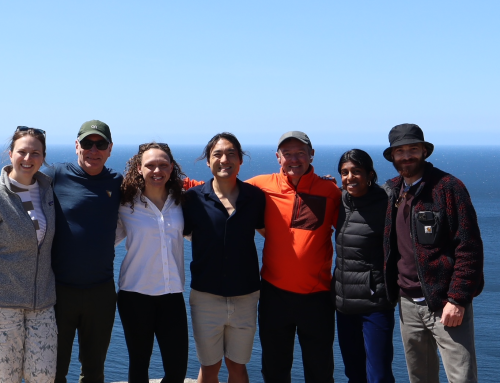What is the knocking?
What is the knocking at the door in the night?
It is somebody wants to do us harm.
No, no, it is the three strange angels.
Admit them, admit them
From D.H. Lawrence Song of a Man Who has Come Through
20 or more years ago I was attending a mindfulness training where Jon Kabat Zinn was teaching, and I recall him saying something like the following, which I will paraphrase: I have been a serious mindfulness practitioner for a very long time. And I have finally come to the point in my life where I can truly be with things as they are…(pause, and then, with emphasis) as long as they are the way I want them to be. This was followed by laughter, and I am sure he has repeated it many times in many different settings. I “got it” then and must say I get it even more now with each passing year, as I find myself in the difficult and at times forced upon us process of letting go (voluntarily or otherwise) of things not being the way I want them to be.
Yet, especially as health professionals with ideals, ideas, motivations, desires, and ambitions I wonder about the dynamics between on the one hand, being driven toward goals and outcomes and on the other hand, having the mindset of accepting what happens to us and making the best of it. Additionally, how do we recognize those desires and ambitions that are worthy of our efforts, and those that are less wholesome so to speak, or, as in the passage from Lawrence’s poem, harmful. And then, even if wholesome and worthy, there is the very real and common human experience of they not coming to fruition, and the disappointment, regret, and self-critique that might follow.
One of my mindfulness teachers, when explaining the quality of letting go and acknowledging how very difficult that can be, held her hand out in a clinched fist, describing how tightly attached we can be to a desire or an outcome or an ambition. And how simply letting it go can almost seem unnatural, disrespectful, and even an act of aggression. She then very slowly, consciously, and kindly pried the fingers of her clenched fist open, one by one, as she described this step of first creating space for letting things be (as they are). This felt kinder, more natural, and something that with being attached to passions, desires, and ambitions, seemed a possibility.
We can reflect upon the stages of psychosocial development described by Erikson in one’s middle adult life, those of generativity vs stagnation, in terms of our own drive in our professional and personal life. I like to think that the muse of Greek mythology, that source of inspiration and guiding genius that in my experience is not external but an internally generated inspiration and motivation that is influenced by genetic, epigenetic, social, and cultural dynamics. The muse moves that generativity that Erikson described forward whether ever actualized through creatively constructed products and experiences or not. And through our individual contemplative and reflective capacities, we can learn to discern their wholeness. As part of a developmental process, that impulse and the actions that follow toward generativity cannot be bypassed.
Meanwhile the Stoics spoke of Amor Fati, making the best out of things as they actually are and as they actually turned out, planned or unplanned, desired, or not. They spoke of it as something to be embraced, indeed, to be loved. With accepting what happens to us and understanding that so many things are outside our control, the invitation then is to love whatever happens to us and face it with strength and kindness. In many ways it is an attitude of self-understanding, self-awareness, and self-compassion. And for these reasons, it becomes a practice, not a static statement- “I got this. No problem.” There are ways to grow into it, and move into the final Eriksonian stage, that of integrity, wisdom, and a contemplation and acknowledgment of one’s personal life accomplishments, whatever they may be.
It may not have turned out quite the way we wanted it to be. It may not have gone quite as planned. And it may be, that at the end of our lives, we can look back and with complete honesty and integrity and only be able to speak about all the many ways that we learned how things did not work out. But that would be authentic, singular, unique, and our very own. In that, I think the muses would be dancing and singing, and the Stoics would be having their discourses, knowing that it is all good.






Leave A Comment